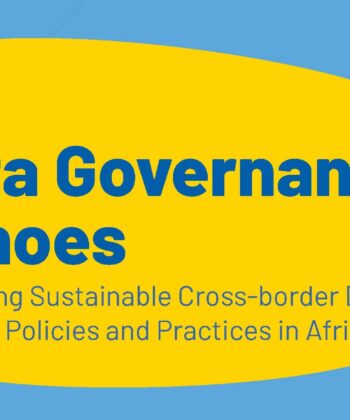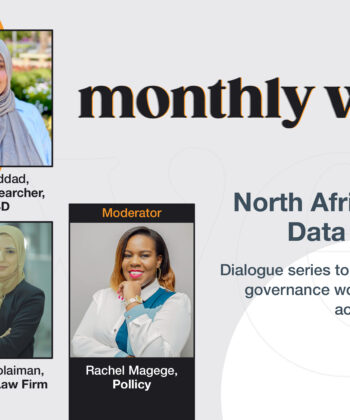
By Joshua Kwesi Aikins |||
The drone takes off with a quiet hum – on board is medicine that needs to reach a patient in a rural area as quickly as possible. A young female pilot monitors the drone’s course as it follows the pre-set route to its destination. After a short flight, the drone reaches a health station, where the attending nurse routinely takes the consignment out of its refrigerated container and continues treating the patient.
This drone flight is happening in Ghana, where the company Zipline operates the world’s largest operational network of drones for healthcare. Ghana was the first country to use drones to fight the Corona crisis. Zipline drones made it possible to process Corona tests much faster. The drone deployment in Ghana, but also its global visibility through repeated coverage in the international press, illustrates the hopes associated with the use of digital innovations across Africa, the Global South and the formerly colonised world.
At the same time, critical voices raise the spectre of digital neocolonialism, the creation of new dependencies and the challenge of digital sovereignty in a world dominated by private platforms used to operating with light or no regulation. They point to a global scramble for user, consumer, mobility and health data, the supposed lifeblood of contemporary economies. Even the spectre of regulation leads some to suspect that the FAANGs (Facebook, Apple, Amazon, Netflix and Google) might want to increase their data guzzling in less regulated, formerly colonised climes.
The dichotomy between tech solutionism and tech pessimism underscores the need to examine political and economic dynamics of digitalisation with a focus on policy options to navigate a fast-changing reality.
However, focus on power imbalances and implications for self determination of African states as key actors is often absent from presentations of private-led digitalisation as a benevolent solution ex machina. Omitting machinations and negotiations around access, market creation and power imbalances, actors in the private sector and development cooperation (where trends such as ICT4Development, blockchain for transparency and other promising buzz words replace each other at ever shorter intervals) are frequently propagating proprietary digital solutions as key tool for solving problems and lubricant for an innovation engine across the African continent.
The question regarding which actors are empowered by digitalisation and whose interests are taken into account is central. For, beyond an overly positive focus on the egalitarian potential of digitalisation, this brings into view dynamics that reinforce old hierarchies and create new ones.
A question of power
In this context, a consideration of the potentials and consequences of digitalisation must always be seen in the context of the question of self-determination of the states, regions and populations of the African continent, precisely because of its dynamics that transform, but also concentrate power.
New analyses of the unfinished process of decolonisation show how far-reaching actors of colonial independence recognised the need not only to achieve national, and therefore largely nominal, sovereignty, but to achieve genuine self-determination through a reshaping of international political and economic hierarchies. What was at stake in this context was nothing less than a process that Adom Getachew describes as “world making”: The construction of a decolonial world and economic order with new horizons of politics beyond Western dominance.
Part of the allure of digital transformation is its promise to provide pathways to upend old hierarchies. Digitalisation lures with the promise of “disruption” of a status quo as laggard that is often experienced as disadvantageous. From a technology-optimistic perspective, the upheavals of digitalisation promise a change that can lead to more self-determination across the Global South. In a modification of a famous quote by the Ghanaian independence president Dr Kwame Nkrumah, this credo could be summarised as follows: Seek ye first the digital kingdom and everything shall be added unto it. This attitude showcases how technical solutions are saddled with a multitude of expectations.
From a technology-critical point of view, however, purely technical solutions cannot change the described unequal distribution of power, which brings this perspective closer to Nkrumah’s original quote: “Seek ye first the political Kingdom and everything else shall be added unto it”.
One thing is clear: politics now also takes place in the digital space, where completely new possibilities for exerting influence on and in the politics of the Global South are emerging – including anti-democratic options for cementing digital power. For years, interference in the free use of the internet has been increasing, especially in the context of elections and political protests. Not least for this reason the African youth protests of the Yen A Marre (central for a democratic change of power and political attention for the concerns of the young population in Senegal) Balai Citoen (central to a peaceful transition of power in Burkina Faso) and the movements of the Arab Spring cannot be reduced to the digital tools they use.
From a technology-critical point of view, however, purely technical solutions cannot change the described unequal distribution of power, which brings this perspective closer to Nkrumah’s original quote: “Seek ye first the political Kingdom and everything else shall be added unto it”.
Such a perspective fails to recognise the achievements of tens of thousands of protesters and activists, not in cyberspace but in the “meat space” of real life, and confuses their documentation online with their impact on everyday life and politics. This shows an all too monocausal approach of techno-optimistic perspectives, which are criticised by techno-critics as “tech-solutionism”. In their euphoria for one-click-fits-all solutions they are all too reminiscent of the many tech driven “development solutions” that have failed due to the complex reality of unequal power dynamics. The use of digital tools is indeed becoming increasingly relevant in the politics of the Global South – but all too often in an anti-democratic way.
Social media and democracy – the empowerment of the powerful
Beyond reductionist narratives of alleged Facebook and Twitter revolutions, recent years have brought to light a multitude of acute examples, such as the campaigns for Brexit, the 2016 US election, but also populist mobilisations against refugees or pandemic restrictions, that even Western democracies are not immune to illegitimate influence on political processes, public opinion-forming and elections, especially via social media. However, while the scandal of Russian hackers influencing the Brexit referendum and the 2016 US elections, as well as Cambridge Analytica, have received much attention in Germany and the Western media, the connection of these phenomena to the Global South has remained underexposed: Cambridge Analytica has been involved in two elections each in Nigeria and Kenya, also using methods such as hacking and dis- and misinformation campaigns. Russian actors partially outsourced their misinformation and disinformation campaigns to influence the US elections to Ghana, where individuals were paid to spread targeted disinformation until the operation was busted in the summer of 2019.
In this context, Kenyan political scientist and legal scholar Nanjala Nyabola pointed out that targeted influence via disinformation on social media is much more intense in African contexts, but at the same time much more difficult to control: “The West experiences only a fraction of the influence exerted [in Africa]….what does accountability for political disinformation look like when a British company uses an American platform to influence Kenyan elections?”.
But the use of social media in predominantly young African societies does not only have negative effects in the sometimes openly conflictual political contexts of Nigeria and Kenya. Often overlooked but no less consequential are the problematic effects of the normalisation of social media as a tool in election campaigns and political communication which are becoming apparent African democracies, which are described as stable.
For example, recent research on the use of social media in election campaigns and political communication in Ghana shows negative consequences, especially in stable systems: In Ghana, the costs of election campaigns have risen due to the additional expenditure on social media in a way that favours rich individuals and established parties and at the same time disadvantages small parties – and thus increases political polarisation. There are also more subtle consequences: For example, politicians’ communication about what they describe as development projects they have launched in their constituencies reinforces a view of politics that focuses on transactions between elected officials and voters. The simultaneous dissemination of misinformation and disinformation about political opponents reinforces a cynical view of politics that politicians are fundamentally not to be trusted.
For many people in the global North as well as in the South, social media appear as a documentation of published opinion in real time. Few consumers are aware that social media content goes through algorithmic filters that result in them being shown only a pre-curated slice of content – and that, given the fluidity between content and advertising, visibility on social platforms is for sale. But even if content placement is not paid for: The curating algorithms are designed to keep users on the platform. This is reliably possible with polarising content – which leads to a conflict of goals between the impact of platforms as the most important source of information and the business interests of the platforms, which is criticised as “surveillance capitalism“, in which attention is the basis for monetising “free” services. Particularly in contexts where traditional media stagnate or are simply too expensive for young people, as Nyabola shows in the example of Kenyan newspapers, social media have a central function as a primary medium – and thus as a gatekeeper.
Beyond leapfrogging or laboratories?
The role of digitalisation in the Global South is usually described along a range of possibilities with two extremes. The positive extreme is the possibility of “leapfrogging”, i.e. overtaking Western “development paths” by skipping steps such as classical industrialisation, which, from the technology-optimistic perspective, could be made obsolete by a far-reaching application of digital solutions. From a technology-critical perspective, this is countered by the diagnosis that the Global South functions as a laboratory of the West, as it has in the case of the vast majority of technical and military internal innovations of the last 150 years (such as the fingerprint, carpet bombing, test runs for medicines or for autonomous armed drones, etc.).
Where once states experimented in the colonies, today both large internet corporations and start-ups with a lot of venture capital are on the move to test and implement technical solutions and business models in contexts with less regulation and in the process collect data – the raw material of the digital economy – on a scale that would be prohibited in Western contexts. Volumes of data on movement , transactions, internet use, etc. of billions of people in the Global South, unheard of until a few years ago, provide private firms with insights and opportunities for influence that often go far beyond those of governments. This is especially true in areas of public planning, whose data sets do not reach the quality and depth of detail of private providers. Development agencies’ standard response to this would be an increase in partnerships between governments and private companies, whereby for the latter these “developmental” activities contribute to an expansion of their customer base, market power and even more access to data.
In order to avoid the concentration of data, the creation, management and use of which should be in public hands or at least under strict public control.
On closer inspection, the opening example of medical drone flight highlights that successes lauded as leapfrogging also contribute to this dynamic: After all, Zipline, the company that operates the drone service in Ghana, is a US company. In this way, from inception of a four year contract in 2019, at least 12,5 million US dollars of Ghanaian government money – mostly from the Ghana Health service Budget – will be paid to a US company and not benefit publicly owned physical nor digital infrastructure in Ghana. Ghanaian ThinkTank Imani criticised Ghana’s Zipline procurement process and the huge cost as misplaced and pointed to much smaller pilots in Rwanda and Tanzania as well as prior, failed medical drone delivery services that betrayed a simple tech-fix as insufficient to solve the issue of oneven health access.
But the ZipLine example is instructive in the bigger scheme of digital aspirations for leapfrogging: Neither operational data, learnings nor the improved drone piloting algorithms they enable are under Ghanaian control. Leapfrogging therefore does not automatically lead to more self-determination, but on closer inspection often turns out to be a marketing veneer on a neocolonial, extractive laboratory arrangement. Beyond sound procurement, targeted policy informed by a digital strategy is required to avoid the pitfalls of digital extractivism.
In order to avoid the concentration of data, the creation, management and use of which should be in public hands or at least under strict public control. In the current context where private data access and ownership is the norm, it is not enough to take individual measures: the Global South must leave the “digitalisation path” of the West, in which data and artificial intelligence are increasingly concentrated unregulated in private hands, in order to be able to use the potential of digitalisation in a way that is self-determined, empowering and strengthens democracy.
Possible Pathways – policies and agency for an African digital agenda
Given these entrenched power imbalances, it is key that African governments as well as African and African Diasporan civil society actors map out pathways towards securing the continent’s digital sovereignty. The contours of an African digital strategy are emerging from a bevvy of national action plans, regional and AU position papers. However disparate, e-government, e-security, digital taxation and e-commerce are emerging as key policy areas in need of strategic intervention. The AfCFTA offers a unique opportunity to address the latter two as part of the e-commercial protocol that is soon to be negotiated. Collaboration and development across African contexts can also help mitigate some of the biases, including racist and sexist biases still prevalent in many implementations of AI that disproportionately disadvantage people of African descent.
As taxation of digital platforms is on the international agenda, African governments must seize the opportunity to increase the policy space for solutions that work for the youngest continent, the region where most future creators of data points and consumers of digital goods and services live. The leverage of being a key future market needs to be reflected in deals and digital infrastructure that demonstrably advance the interest of current and future African consumers.
The ongoing extraction of digital rents (in form of both data and revenues) from the continent can only be limited through concerted and targeted action. The current international interest in regulating platforms provides a window of opportunity that is set to close sooner than the ordinary pace of international cooperation can produce a suitable outcome. This is why African governments must make sure to first strengthen their collective political kingdom – to ensure the digital will be added unto it.



